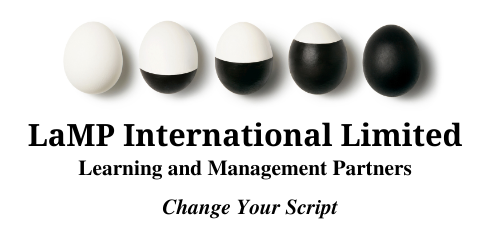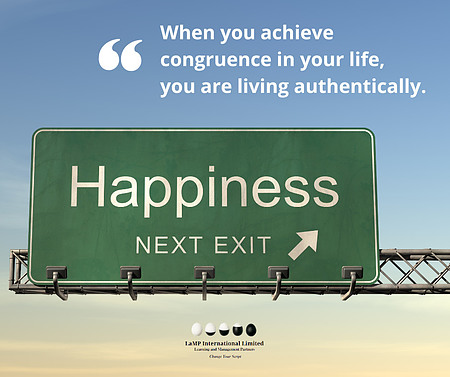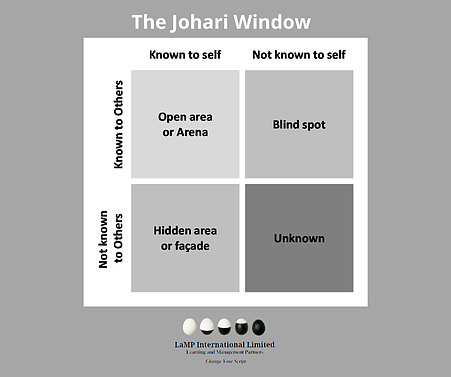In this article, we are going to answer the question: “How can congruence be applied in real life?” When you achieve congruence in your life, you are living authentically. What you think, feel, say and do are aligned, There is little or no conflict. You are able to function and communicate with ease.
Congruence does not come easily. I will not take you down the road of pretence. It IS hard work and requires commitment and consistent effort. Just like anything else that is worthwhile.
Once you stay the course, however, the rewards are more than worth it. Who doesn’t want to live a happy life?
We all do, I think.
So, let me share 5 everyday ways you can apply congruence to your life. These are simple things that you can start doing – or do more of – to achieve greater satisfaction in your life.
From drinking one more glass of water each day to learning to be assertive.
Here we go.
1. Build Trust
You are probably calling me “crazy” for saying that this would be easy. Building trust takes time. It is earned. No one will meet you for the first time and trust you implicitly.
Trust needs to be a high priority though, especially if you are working towards living with greater authenticity. When people trust you, doors and windows open for you. It becomes easier to attract support from others. It becomes easier to lead.
As an employee, when you earn the trust of your peers, Managers and leaders, opportunities become bountiful. You are more easily embraced. You are more valuable.
In your personal lives, with trust supporting your steps, your relationships become less (dis)stressful and more (eu)stress-filled.
Trust is the wind beneath your wings.
2. Set Boundaries
I recently listened to Jenna Kutcher being interviewed by Jesse Chappus for one of his Ultimate Health podcasts. Jenna shared a profound statement about boundaries that hit me on my head.
She said:
We usually think about setting boundaries to keep people OUT. If you flip that and think about them to keep YOU IN your life, you begin to have a completely different appreciation for your own self-worth.
It now becomes important for you to protect yourself and to direct your energies inward rather than outward. You make yourself important and worthy and strengthen your self-esteem and self-confidence.
WATCH THE VIDEO – FINDING CONTENTMENT AND REDUCING [DIS] STRESS (NBC Today)
3. Say “No“
Once you set boundaries, you know what you are willing and not willing to do. That makes it much easier to say “no” to the things and people that do not fit with your goals and objectives.
It may take some practice and getting used to, especially if you are like me and you enjoy making others happy. But, that could become burdensome if it is not well managed.
Giving in to the requests and demands of others can be consuming. Soon, your time is not your own and you find yourself struggling to keep your balance and losing your own purpose.
I am not saying to stop helping and supporting others. What I am highlighting is that you need to do that without sacrificing yourself and allowing your generosity to become an overflowing and overweight tank on your shoulders.
4. Define Expectations
“If you can’t define it, you can’t manage it. If you can’t manage it, you can’t change it.”
How often do you set clear expectations when you are interacting with others?
I did not always set expectations, let alone clear ones. In my experience, working with others, most people do the same. Then, when things get chaotic, we become frustrated and pass on the blame.
You cannot effectively manage things outside of your control and you can control setting clear expectations – for yourself and for others. This is similar to setting boundaries.
People will do what you allow them to do. If your expectations are unclear or unstated, they will do what makes them comfortable and satisfied.
Let people know what you expect from them and provide feedback – to reinforce the good and redirect what you are not willing to accept.
This will also help you to earn respect and trust.
5. Know Thyself
Created in 1955 by psychologists Joseph Luft and Harrington Ingham, the Johari Window was designed to help individuals and groups better understand themselves and their relationships with others.
The main objective is to reduce the Blind Spot and Unknown quadrants while increasing the Open Area without compromising your privacy and making yourself vulnerable.
This brings greater understanding, self-awareness and self-knowledge. With more knowledge about yourself you have greater control of your thoughts, feelings and behaviours. This eventually leads to more consistent congruence.
Greater congruence results in more balance. Things such as communication and decision-making are more effective. Trust in yourself strengthens and this leads to the attraction of more trust from others.
Knowing yourself is a life-long journey and one that can reward you with clarity, simplicity, ease of functioning, purpose and success.
Closing Thoughts . . .
How can congruence can be applied in real life? These 5 ways are effective starting points to help you start your journey.
I will remind you that it may not be an easy journey. It definitely will not be a short journey. It will require patience and consistent effort to bring your life into alignment.
My conscious journey began over 30 years ago and continues. There has never been a time of regret or desire to stop the journey. Actually, my challenge is that I cannot travel fast enough.
My greatest joy comes from reflecting and knowing how far I have come and how much I have grown.
I would not have it any other way.
About The Author
Cassandra is a Management Consultant, Internationally qualified Facilitator, Coach, Strategist and Behaviour Change Agent. She enjoys travelling, exploring cultures and learning about historical and social networks and dynamics.
Her driving force is the education and development of her tween daughter. The roots of her inspiration to diversify her niche markets and the motivation to expand and scale her business investments rest firmly in this relationship.
This is the reason for creating her legacy.



